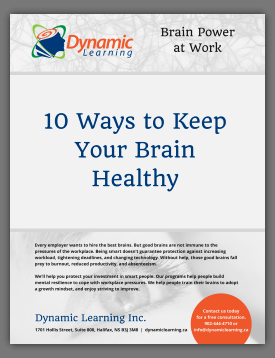If you want to be a better influencer – a better manager, colleague, partner or parent – a good starting point would be to study SCARF.
SCARF stands for Status, Certainty, Autonomy, Relatedness, and Fairness. The concept was introduced by Dr David Rock in 2008 and brings together important discoveries from neuroscience about the way people interact socially. SCARF identifies five elements that influence the success – or failure – of any collaborative effort.
Dr Rock asserts that the five elements represent our primary needs. They activate the same reward circuitry in the brain that physical rewards activate, like money, and the same threat circuitry that physical threats activate, like pain.
Status
Status is about your relative importance to others, your seniority, or pecking order. Winning a race, a card game, or an argument probably feels good because of the perception of increased status and the resulting reward circuitry being activated in your brain. Being left out of a social activity or being criticized feels like a drop in status. It lights up our threat response in the same regions of the brain as physical pain.
Praising genuine effort, pointing out improvements, giving specific positive feedback, and arranging public recognition when a person does well are all ways that increase the reward from Status. Giving unnecessary instructions or unsolicited advice, not listening, or making unfavourable comparisons are all ways to cause the person to subconsciously feel a threat to their Status.
Certainty
This is about the brain being able to predict what is going to happen next. Even a small amount of uncertainty causes us to lose focus. Notice how you feel when you think somebody is not telling you the whole truth or is changing something you previously agreed upon. Larger uncertainties, like not knowing your boss’s expectations or feeling that your job might not be secure, are really upsetting.
You can improve another person’s sense of certainty by having well defined plans, making expectations clear, breaking something complex into simple steps, and being transparent about time limits.
Autonomy
Autonomy is the perception of exerting control over one’s environment; a sensation of having choices. Understanding that rational thinking gives you the power to choose your response to a stressor can make a huge difference to how much stress you can handle. Whether at work or at home, working in a team means less autonomy. With an autonomy threat just below the surface, it can be helpful to pay attention to this driver of behaviour. The statement, “Here’s two options that could work, which would you prefer?” will tend to elicit a better response than “Here’s what you have to do.”
Relatedness
Relatedness involves deciding whether others are ‘in’ or ‘out’ of a social group. Whether someone is a friend or foe. Relatedness is a driver of behaviour in many types of teams, from sports teams to organizational silos; people naturally like to form ‘tribes’ where they experience a sense of belonging.
Without safe social interactions, the body generates a threat response. Whether you are responsible for a newly forming team at work or for ensuring everyone has a chance to connect at a party, planning a way for people to share stories, personal information, or even photos can make the difference between success and failure. Atul Gawande, the Boston surgeon who wrote The Checklist Manifesto, insists that everyone start in the operating theatre by sharing their names and their particular roles with each other. There are also specific times during the operation when they stop, and everybody talks to each other. This approach has brought about striking improvements in the success of their operations.
Fairness
Unfair exchanges generate a strong threat response (Tabibnia & Lieberman, 2007). People who perceive others as unfair don’t feel empathy for their pain, and in some instances, will feel rewarded when others are punished unfairly.
The threat from perceived unfairness can be decreased by increasing transparency and increasing the level of communication and involvement about important issues, like financial affairs.
Managers and parents must be careful about giving a larger proportion of time to the poorest performer. It may seem fair to give every opportunity to improve to the weaker member, but if the manager or the parent runs out of time or energy, then the top performing employee or the best-behaved child is being treated unfairly. Establishing clear expectations in all situations can help ensure fair exchanges occur. A sense of unfairness can result from a lack of clear ground rules, expectations or objectives. At work or at home, you will certainly have more influence if you do everything you can to treat others fairly.
Over the next couple of weeks, notice when your Status, Certainty, Autonomy, Relatedness, or Fairness feels threatened or rewarded. Understanding these drivers can help you function more effectively and comfortably.
Once you have worked on the SCARF model with yourself for a few days, try some creative ways of motivating others. You could give someone more autonomy by offering them more choice in how they do something. You could give them the opportunity to learn new skills, which would increase their status.
Think about what you could do in the areas of Certainty, Relatedness, and Fairness and have some fun improving your influencing skills while you increase the happiness of the people around you.
Contact me to talk about how I can help you or your management team get the most value out of your intelligence and experience. Call me at 902-444-4710 or 866-317-9837, or email epease@eileenpease.com.


